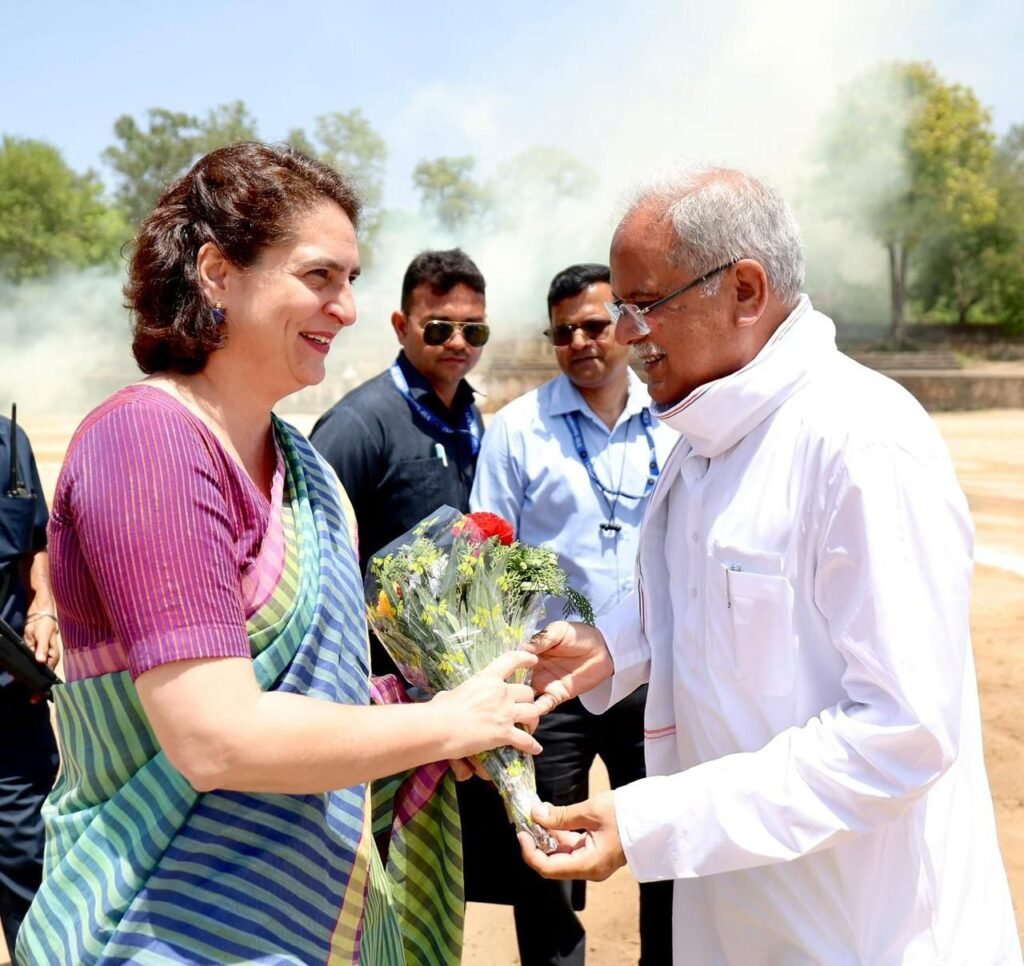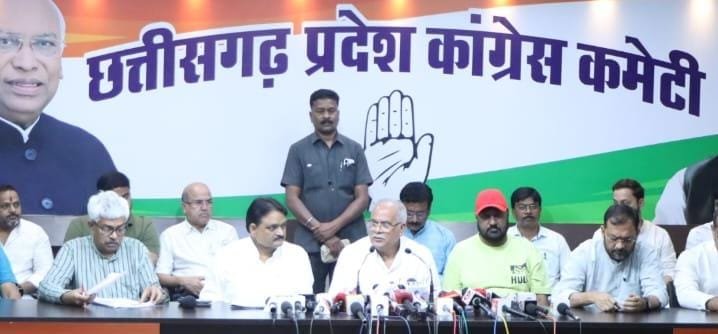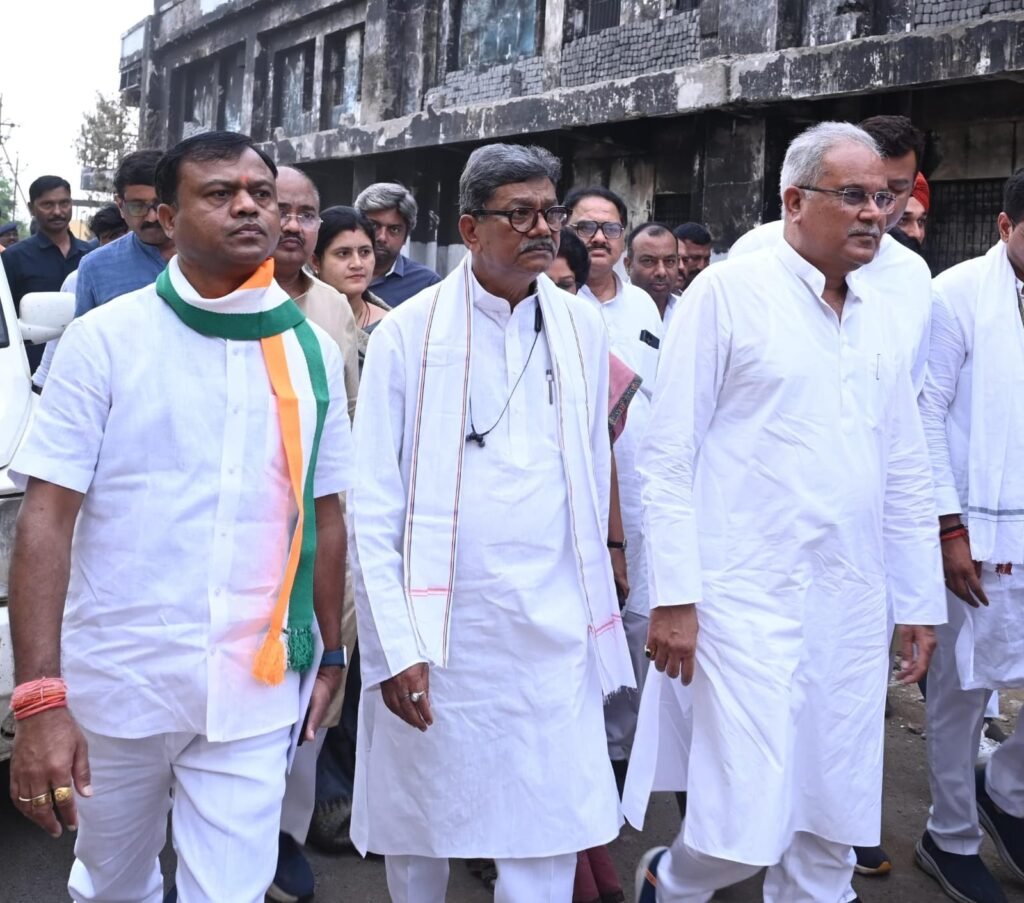Can Cong ditch caste, embrace change, and claim Chhattisgarh in 2028?
After losing power to the BJP in an unexpected setback in the last assembly elections in Chhattisgarh, the Congress seems determined to fight for a comeback in the next elections. However, the path to victory is fraught with challenges that require the party to rethink its strategies, especially regarding caste politics, regionalism, and the leadership dynamics within its ranks.
During the tenure of Chief Minister Bhupesh Baghel, the Congress leaned heavily on caste-based politics and regionalism. While Baghel, at 62, remains a prominent figure in Chhattisgarh politics, the party’s overemphasis on caste considerations has not always translated into electoral success. Baghel’s leadership is contrasted with that of two senior Congress leaders: Dr Charan Das Mahant, the 69-year-old leader of the opposition, and T S Singhdeo, the former deputy chief minister, who is now 71.
In contrast, younger leaders like Deepak Baij, the 42-year-old PCC chief and a tribal, are still emerging and struggling to establish themselves as significant state-level leaders. For Congress to reclaim power in 2028, it must embrace fresh leadership while respecting the experience of its senior members. This shift is crucial as the electorate seems to favour non-aggressive, approachable, and effective leaders over those who prioritize caste politics.

Historically, Chhattisgarh has been a Congress stronghold since its days as part of undivided Madhya Pradesh. However, since becoming a separate state in 2000, the Congress’s strategy of focusing on caste and regional identities has often backfired. During the early years of statehood, Ajit Jogi, the state’s first chief minister, laid a solid foundation with his policies, which benefited successive governments. Yet, his government’s defeat was largely due to the caste and regional and aggressive politics that overshadowed his achievements.
Baghel initially appeared poised to lead the Congress to multiple terms in office. However, the actions of his close associates, including some promotee IAS officers, state administrative service officials, a few former journalists, and unscrupulous businessmen, along with Baghel’s own aggressive public behaviour, created an atmosphere of fear and discontent. The coterie of this handful of non-political actors called the shots, antagonized the people, and created an environment that undermined the party’s credibility and contributed to its electoral setback.

Congress also deviated from its core constituencies of Dalits, tribes, and minorities, as the Baghel government was seen as pursuing a Hindutva agenda throughout its tenure. Incidents of attacks on minorities were either ignored or taken lightly, leading to minorities feeling alienated—not from Congress but from the Baghel government. Additionally, the over-focus on OBC politics, specifically on one sub-caste, not only alienated the majority tribal population but also did not sit well with the people as a whole in the state where caste has never been a major factor in politics.
To ensure a return to power in 2028, Congress must adopt a “guerilla” approach to its political strategy, especially when countering the BJP, which has been on a sloppy path since the last Lok Sabha elections. The Congress have to delve deep into ground realities, understand the electorate’s needs, and promote younger, dynamic leaders who resonate with the public.

Moreover, it is imperative for senior leaders, including Baghel, to distance themselves from those whose influence may have tarnished his government’s reputation. The saying, “A leader is known by his company,” holds true in politics. The Congress and its state leaders must shed the baggage of its past and focus on building a team that reflects the aspirations of the state’s populace.
For Congress to wrest power in the 2028 Chhattisgarh assembly elections, it must move away from the pitfalls of caste and regional politics. Embracing a strategy that prioritizes effective, approachable leadership and ground-level realities will be key. The party’s future success hinges on its ability to evolve and adapt, shedding preconceived notions and forging a path that connects with the electorate’s true desires.
